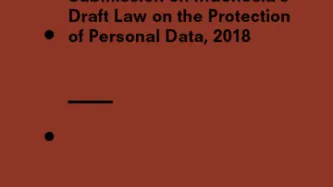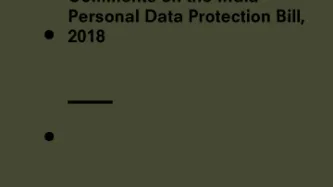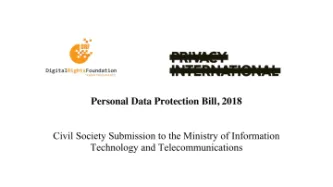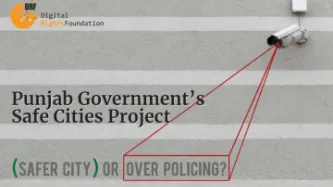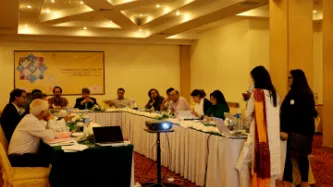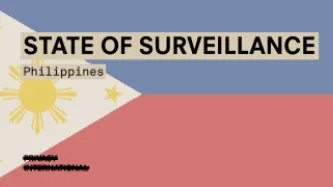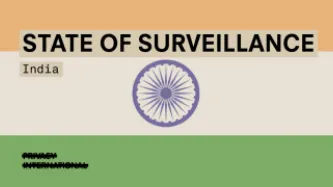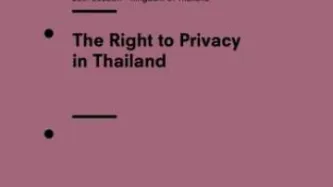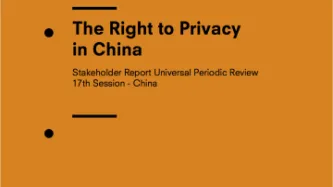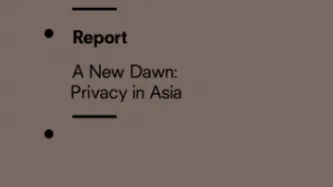Search
Content type: Examples
A reverse-engineering analysis of Vietnam's official Bluetooth-based contact tracing app, Bluezone, which was developed by a coalition of local technology companies and the Ministry of Information and Communications, shows that the app is broadcasting a fixed six-character ID the app assigned to each installation. The app, which is intended to alert people who may have come into contact with the virus while preserving their anonymity, comes in both iOS and Android versions, and quickly…
Content type: Examples
The Afghan Ministry of Public Health and Ministry of Telecommunications and Information Technology have launched the "corona.asan.gov.af" software to provide health advice in three English, Dari, and Pashto; using the questions embedded in the software users can evaluate themselves for the virus.
Source: https://tolonews.com/afghanistan/afghan-ministries-launch-coronavirus-tracking-app
Writer: TOLOnews
Publication: TOLOnews
Content type: News & Analysis
According to the International Organization for Migration, an estimated 258 million people are international migrants – that is, someone who changes their country of usual residence, That’s one in every 30 people on earth.
These unprecedented movements levels show no sign of slowing down. It is predicted that by 2050, there will be 450 million migrants across the world.
Nowadays, it is politically acceptable to demonise migrants, and countless leaders have spewed divisive and xenophobic…
Content type: Advocacy
Since 2014 the Indonesian Ministry of Communication and Informatics (MOCI) has been proposing that the Parliament passes a comprehensive data protection law. A first draft data protection law was issued by the Government for public comment in 2015 but no progress was made, and then in early 2018, the Indonesian Government issued a new draft personal data protection law.
While these renewed efforts have positive intentions, a number of concerns ought to be addressed with the aim of…
Content type: Advocacy
Privacy International welcomes the effort by the Government of India to reaffirm its commitment to upholding and respecting the right to privacy, and for noting the need to regulate the processing of personal data as essential for the protection of privacy through the adoption of a data protection law.
The urgent need for this legislation has been validated in the Supreme Court decision regarding the Aadhaar Act, which stipulates the need for a robust data protection regime. …
Content type: Long Read
The idea of a “smart city” is primarily a marketing concept, used to sell data-intensive technologies under the pretext of improving the functioning of cities. This could include injecting ‘smart’ tech into delivering services, public safety, environmental monitoring, traffic control, among other possible applications.
One in particular aspect of smart cities has been consistently problematic: how these projects are used to boost law enforcement and policing under the guise of public safety.…
Content type: Advocacy
We welcome the effort by the Pakistani Ministry of Information Technology and Telecommunications to regulate the processing of personal data in Pakistan, and take measures to guarantee the right to privacy as guaranteed under Article 14(1) of the Constitution: “[t]he dignity of man and, subject to law, the privacy of home, shall be inviolable.”
This legislative development is crucial and timely as Pakistan continues to embrace innovative governance initiatives and deploy data-intensive systems…
Content type: News & Analysis
By Digital Rights Foundation, Pakistan
What is a safe city?
The answer to this question is not uniform; in fact it varies according to who you ask.
In a focus group conducted by Digital Rights Foundation in May of last year, consisting of women rights activists from across Pakistan, the answer meant imagining a city that was not only safe for women, in terms of their physical safety, but also welcoming for women and non-binary individuals in its architecture and facilities. Women expressed…
Content type: Advocacy
India has been leading at developing some of the most complex and intense data-intensive systems in the world as exemplified with their mass biometric identification system, known as Aadhaar, as well as in the development and design of new technologies. To find out more about the main privacy issues in India, check out the State of Privacy in India.
And yet, India does not have a comprehensive privacy legislation and only limited data protection standards can be found under section 43A and…
Content type: News & Analysis
Written by the Foundation for Media Alternatives
7:01: Naomi wakes up and gets ready for the day.
7:58: Naomi books an Uber ride to Bonifacio Global City (BGC), where she has a meeting. She pays with her credit card. While Naomi is waiting for her Uber, she googles restaurant options for her dinner meeting in Ortigas.
9:00: While her Uber ride is stuck in traffic on EDSA (a limited access highway circling Manilla), Naomi’s phone automatically connects to the free WiFi offered by the…
Content type: Press release
The European Court of Human Rights will hear a landmark case on surveillance tomorrow (7 November) as part of a challenge to the lawfulness of the UK’s surveillance laws and its intelligence agencies’ mass surveillance practices.
See the attached briefing for case background and historical information.
The case, described by campaigners as a “watershed moment for people’s privacy and freedom of expression across the world”, is being brought by Amnesty International, Liberty, Privacy…
Content type: Advocacy
This stakeholder report is a submission by Centre for Internet and Society India (CIS India) and Privacy International (PI). CIS is a non-profit organisation that undertakes interdisciplinary research on internet and digital technologies from policy and academic perspectives. Through its diverse initiatives, CIS explores, intervenes in, and advances contemporary discourse and practices around internet, technology and society in India, and elsewhere. PI is a human rights organisation that…
Content type: News & Analysis
The much maligned Prevention of Electronic Crimes Bill (PECB) was dealt a critical blow by senior Senate members on Tuesday in Pakistan. Digital Rights Foundation, in conjunction with Bolo Bhi, held a consultation for members of the Pakistan Senate, other lawmakers, members of civil society, and the media.
The aim of the consultation was to discuss the Bill, the problematic provisions and amendments that have been suggested in its most recent version, and the steps…
Content type: News & Analysis
The National Privacy Commission has had to firefight a huge leak of voter data in Philippines just one month before the elections
Raymund Liboro, the Philippines’ National Privacy Commissioner, has had a tough few weeks. Barely has his office even existed -- he was appointed in March -- than it is having to firefight what is being reported as the country’s most massive data breach to date. On 27 March, a hacker broke in to the national Commission on Elections (Comelec)’s…
Content type: Long Read
This guest piece was written by Jessamine Pacis of the Foundation for Media Alternatives. It does not necessarily reflect the views or position of Privacy International.
Introduction
With a history immersed in years of colonialism and tainted by martial law, Philippine society is no stranger to surveillance. Even now, tales of past regimes tracking their citizens’ every move find their way into people’s everyday conversations. This, for the most part, has kept Filipinos…
Content type: Long Read
Written by: Centre for Internet and Society
This guest piece was written by representatives of the Centre for Internet and Society (CIS). It does not necessarily reflect the views or position of Privacy International.
Introduction
As part of the State of the Surveillance project, CIS conducted a review of surveillance law, policy, projects, and trends in India. Below we provide a snap shot of key legal provisions governing surveillance in India and touch on…
Content type: Advocacy
This stakeholder report is a submission by Privacy International (PI) and Thai Netizen Network (TNN). PI is a human rights organisation that works to advance and promote the right to privacy and ght surveillance around the world. TNN is a Bangkok-based organisation that works to promote human rights in Internet policy and support the work of human rights defenders in digital environment. PI and TNN wish to to bring concerns about the protection and promotion of the right to privacy in…
Content type: News & Analysis
Every government seems to want to spy in Pakistan. The US' National Security Agency (NSA) tapped the fibre optic cables landing in Karachi, among others, and used 55 million phone records harvested from Pakistani telecommunications providers for an analysis exercise. The United Kingdom's Government Communications Headquarters (GCHQ) had a store of SIM keys from Mobilink and Telenor networks, two of the country's biggest providers.
But the Pakistani government, specifically the…
Content type: Advocacy
This stakeholder report is a submission by Privacy International (PI). PI is a human rights organisation that works to advance and promote the right to privacy and fight surveillance around the world. PI wishes to bring concerns about the protection and promotion of the right to privacy in Singapore before the Human Rights Council for consideration in Singapore's upcoming Universal Periodic Review.
Content type: Advocacy
This stakeholder report is a submission by Privacy International (PI). PI is a human rights organisation that works to advance and promote the right to privacy and fight surveillance around the world. PI wishes to bring concerns about the protection and promotion of the right to privacy in Myanmar before the Human Rights Council for consideration in Myanmar’s upcoming Universal Periodic Review.
Content type: Advocacy
This stakeholder report is a joint submission by Privacy International (PI) and the Law and Technology Centre of the University of Hong Kong (HKU). PI is a human rights organisation that works to advance the right to privacy and fight surveillance around the world. PI has been working with HKU to conduct research and policy engagement on privacy and data protection issues in China and Hong Kong since 2009. Together, PI and HKU wish to bring concerns about the protection and promotion of the…
Content type: Report
Privacy has truly become an issue of global resonance. A quick glance at policy agendas in countries around the world shows that privacy and surveillance issues are increasingly important. The challenge, however, is improving the ability of governments and policy stakeholders to engage in a policy debate that is informed about the dangers of surveillance and the importance of protecting privacy. This is the primary objective of our Privacy in the Developing World programme.In this report, we…
Content type: News & Analysis
PI spent the first half of February in Asia, visiting our regional partners and speaking at events. Our trip began in Delhi, where the Centre for Internet and Society (in collaboration with the Society in Action Group) had organized two consecutive privacy conferences – an invite-only conclave on Friday 3rd February and a free symposium open to the public on Saturday 4th February. The conclave consisted of two panels, the first focusing on the relationship between national security…
Content type: News & Analysis
Nigel Waters has previously represented Privacy International at APEC Data Privacy Subgroup meetings, on one occasion with PI having official guest status, otherwise indirectly through membership of the Australian delegation. On this occasion, expenses were paid by USAid for participation in the technical assistance seminar, and this allowed attendance at the other meetings.
Cross border privacy rules
As a reminder, or for newcomers, the cross border privacy rules (CBPR) system is one…

